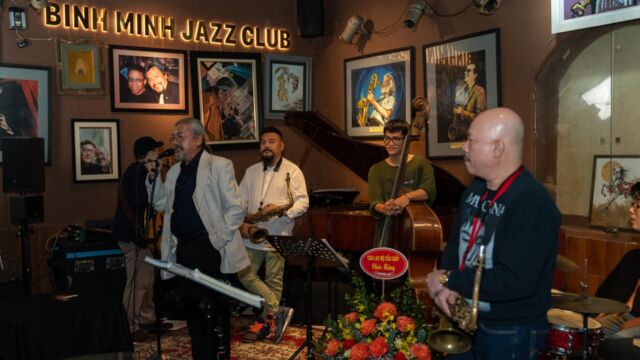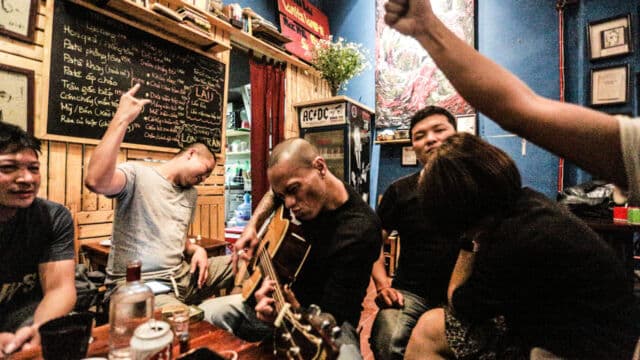Photo: Torazz
Bach Mai Street | 2,000 words
Translated from Vietnamese by Khai Q. Nguyen
I was away from Bach Mai for most of my childhood and teenage years, only to return to it when I was almost 30 years old. It’s a street that’s too crowded with people and cars and garbage on its long narrow axis. Too full of green-haired or red-haired and fully-tatooed youths, who drive carelessly and are too eager to curse at you about fucking your mother if you get too close while they’re speeding. A street with too many children wandering by the curb, as if their parents have forgotten them, maybe forever. For Bach Mai natives, the missing puzzle piece is the people with mental illnesses who used to wander around here when I was a kid. Now perhaps they all stay at the Mai Hương Daycare Psychiatric Hospital, though only God knows where they go at night.
But if someone asks me where my home is, I would never say “Gia Lộc, Hải Dương”, as my ID declares, or even “Hanoi”. It’s almost out of instinct, and perhaps a tendency to too much detail, that I will say Bach Mai Street. As NWA wrote “Straight Outta Compton” (legendary gangsta rap album released on August 8, 1988, my birthday), I will write “Straight Outta Bach Mai” to acknowledge this place that has supported my existence and tolerated my madness for over thirty years.
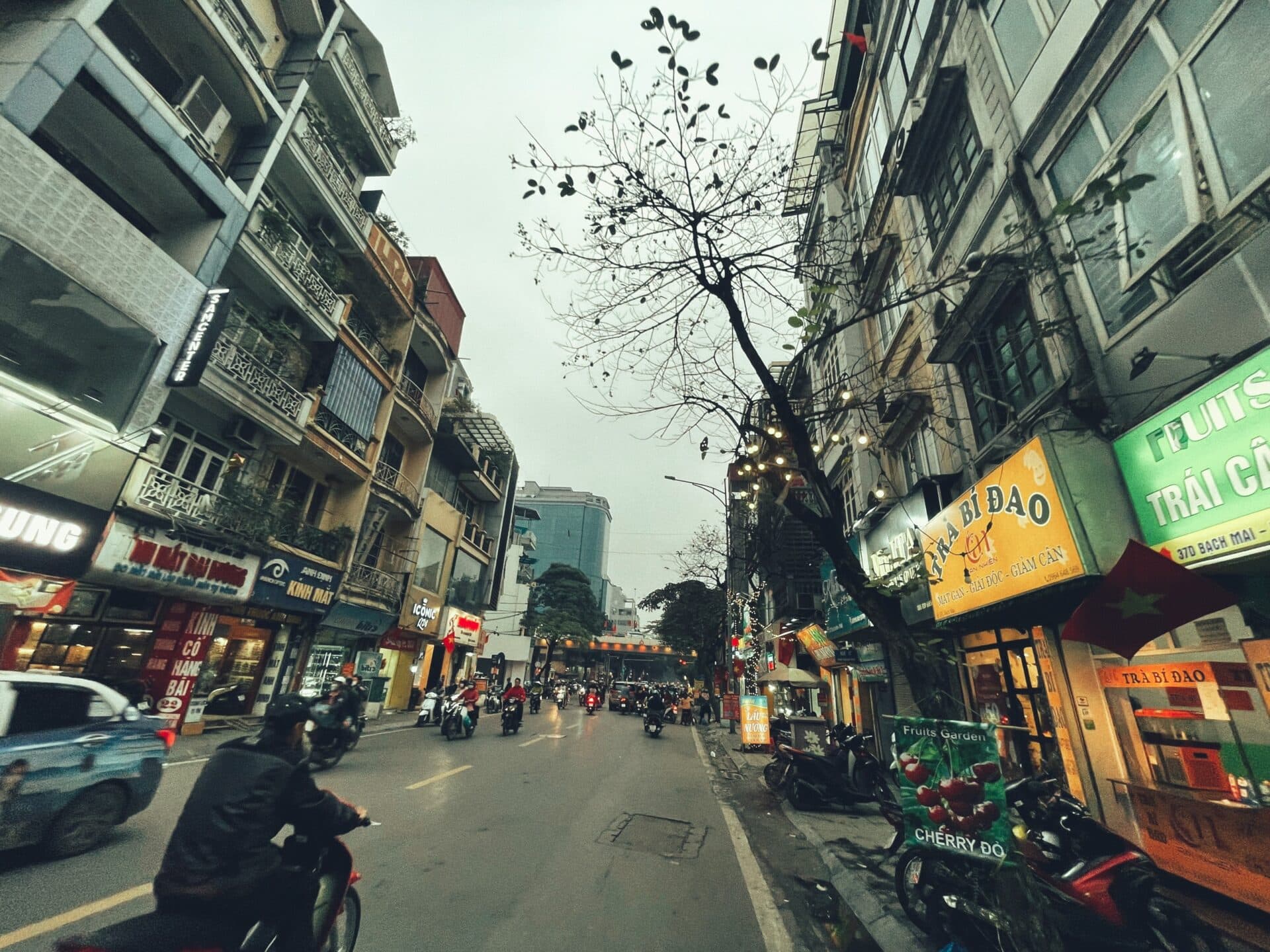
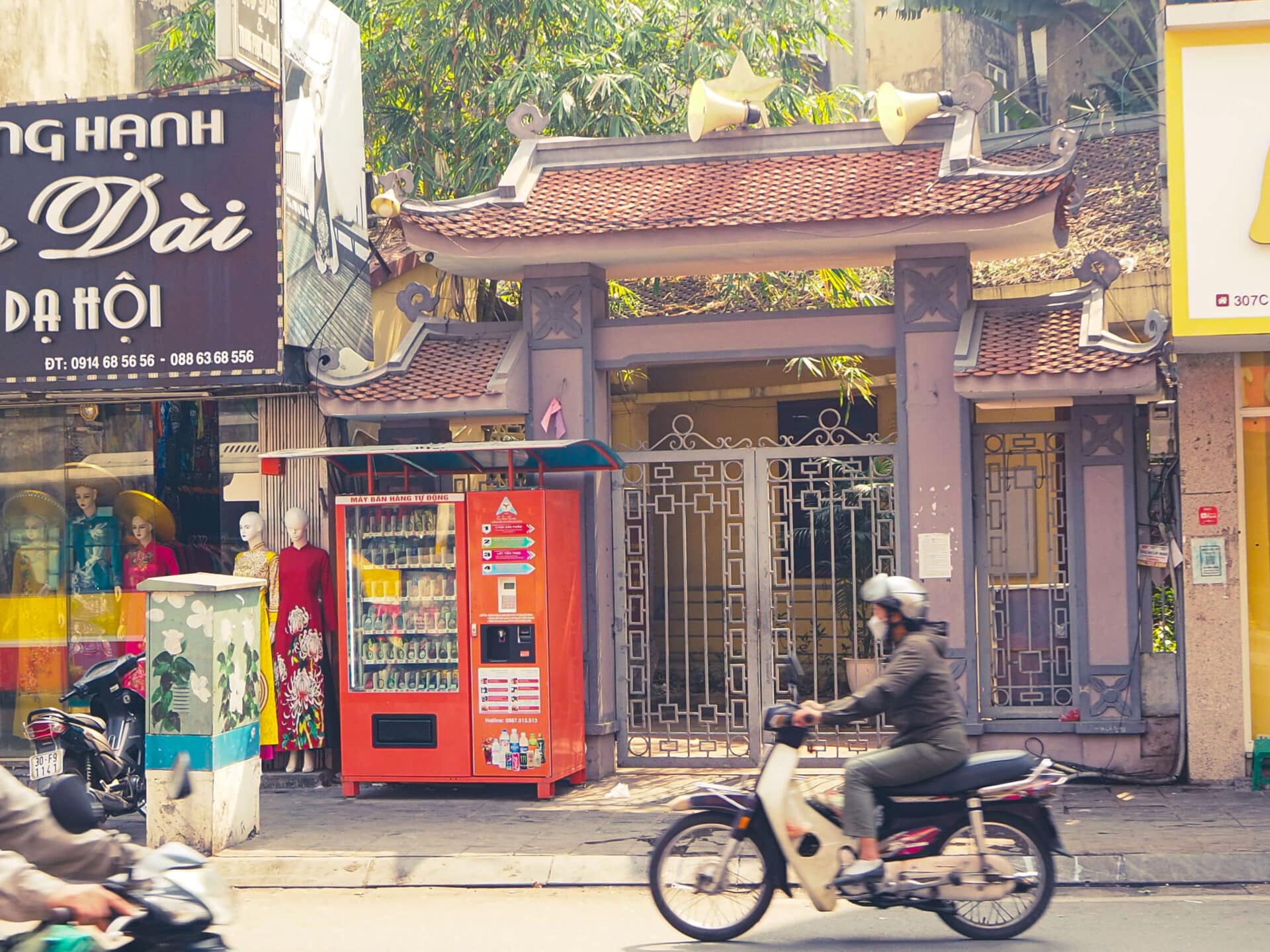
I wonder if a place is a key thing that instils in a person a sense of compassion. Every one of us will die, our bodies to be buried deep in cold ground. Things we hold dear will be abandoned in the graveyard of life. Dreams will sink, and love will prove to be nothing more than an illusory puff of smoke. But a place can exist as a reminder that, although external change is inevitable, the inner spirit can be immutable. A place is like an anchor to which a human, with all the imperfections of being human, can cling. Sometimes one has nothing to look back on or return to other than a place. And so I always return to Bach Mai, in my mind and in reality.
One boring afternoon, in a traffic jam, I drive down my home street.
*
Bach Mai is a very old street located in the southern part of Hanoi. The intersection of Bach Mai, Huế, Trần Khát Chân, and Đại Cồ Việt Streets where my friends and I used to get fined by the police countless times was, about nine or ten centuries ago during the Lý Dynasty, the site of Cầu Dền Gate. There used to be a bridge standing there, and when I cross the intersection, like I do now, my eyes wandering to see if there’s anything to be careful about (even if I’m not going against the traffic rules), I still wonder: the bridge and the old river that it crossed, where are their souls now? As for Bach Mai Street and the places surrounding it, hundreds of years ago, they were the site of an apricot forest. And just like a gate that now only lives on in the collective memory of local residents, that apricot forest must be buried somewhere under the mudflow of history. What I see today, when I drive too slowly along the street where I was born, among countless horns protesting my tardiness, and muttered curses from local residents – so compassionate – is a neighborhood not very developed, dragging its feet through the 21st century, and wondering how far it will get before its final demise.
On sad and gloomy afternoons, like this afternoon, I often pass 516 Bach Mai, my childhood home, now a jewellery store, just to think about the place where I was brought into the world. My house used to be opposite Mo Market, which was the city’s wholesale market decades ago, a bustling place full of trades, scams, frauds, thieves, and petty gangsters.
My family’s old, French-colonial style house used to lie, when my father was young, and I wasn’t born yet, in a space that in the present day is an intersection. It was at 548 Bach Mai, now a nonexistent address.
Another spot in that intersection, on its opposite side, right next to a utility pole that has survived all the demolitions, many years ago used to be a familiar place for my family and friends, and also a gathering place for people from all walks of life, including violent and loud gangsters. I used to visit that place, where my aunt Dao’s little café was, with her two sons, Keo and Kim, who I haven’t seen in a long time. It’s not them I miss, but that gypsy atmosphere, which my father used to refer to as its aura, which I will never again have a hold on, which is now completely extinguished.
In Bach Mai there are very old buildings of the early twentieth century style, so if for a moment a soul is disturbed when passing along this crowded street and suddenly looks up, they will see how the shell of the fading century is still present on the second floors of those buildings. It’s a classic, moody type of architecture, with long narrow windows in a style that dates back to the days of French Indochina, with too-narrow balconies that have just enough room for one person to stand smoking and watering orchids or feeding birds. Those sort of scenes are now often hidden behind big commercial billboards.
Maybe what I like most is the building at 484 Bach Mai, whose second floor is covered with mossy bas-reliefs, with old windows that are broken here and there, while on the first floor is a modern pharmacy decked out in blue and white, just like innumerable other pharmacies in the city.
Maybe what I like most is the house at 178 Bach Mai, whose façade bears the year of construction, 1928, 60 years before I was born. In just five years, it will be on the verge of being a hundred years old – if it is kept for another five years.
Maybe what I like most is the building at 200 Bach Mai, which has the same classic shape, but if you look at it on any lost night, you will see a light shining upstairs, confirming that there’s a life that lives on inside, right above the glasses shop.
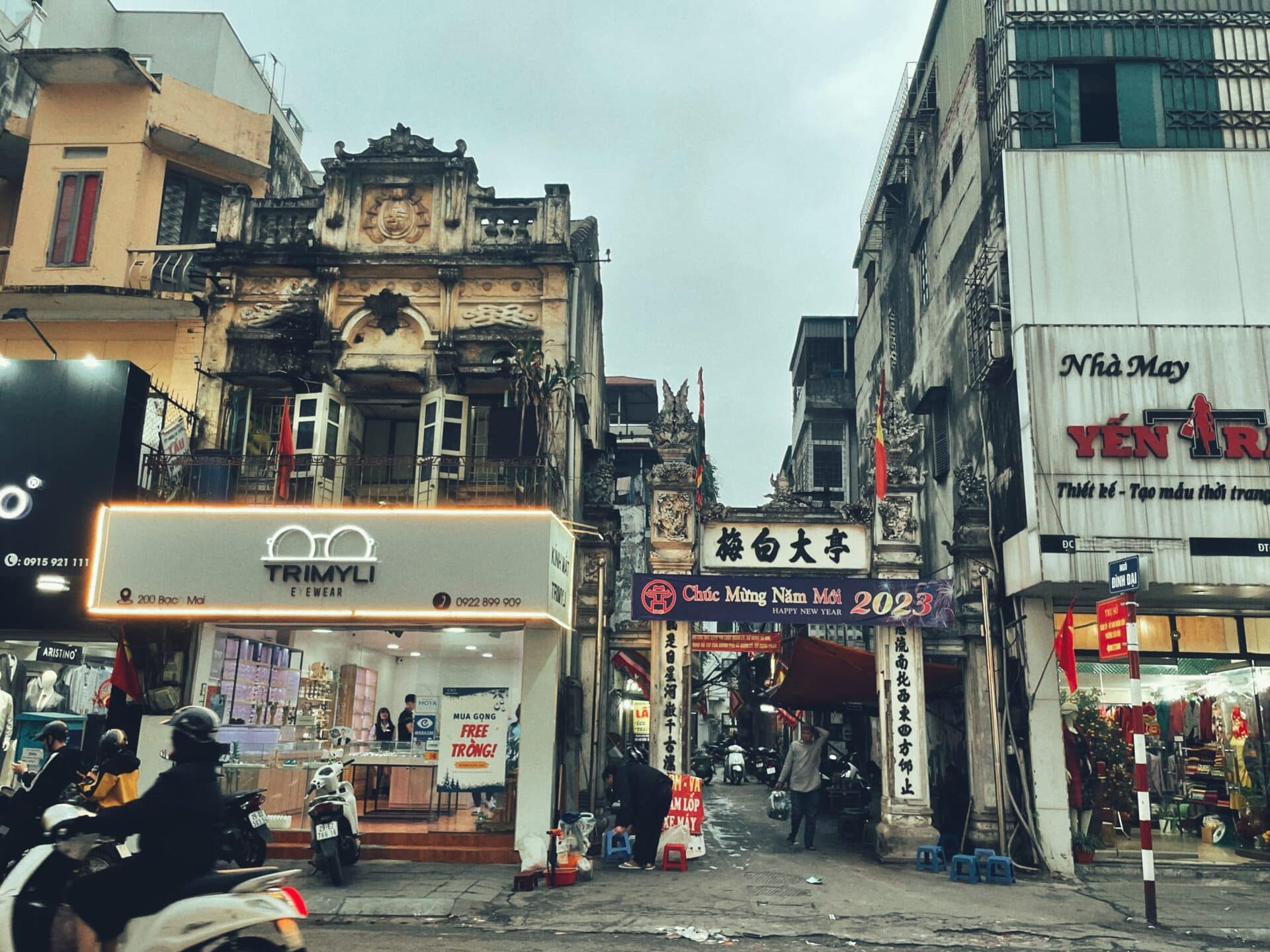
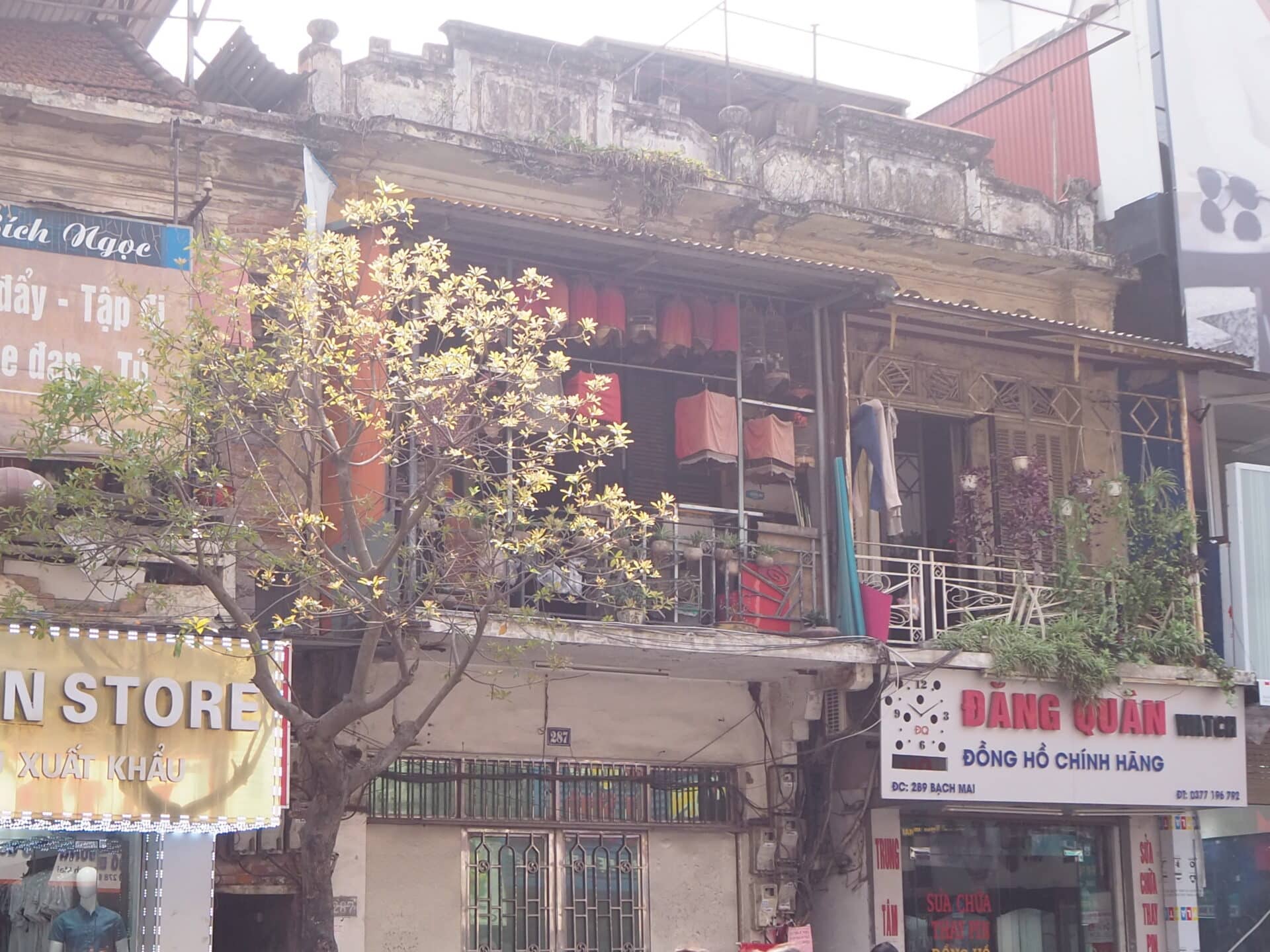
That 200 Bach Mai building is located right next to the alley leading to Liên Phái pagoda which, hundreds of years ago, was the land of the descendants of Lord Trinh. Dynasties, no matter how glorious, will come to an end, leaving only places to stay for the ghosts of the past who need a refuge to cling to.
As I sit in a traffic jam this afternoon (traffic jams are always lurking on this street), I get to look for a long time at an old, ugly row of buildings. They’re painted with yellow whitewash and adorned with green windows and red tile roofs – a very socialist building block from the 1970s, owned by Elenco Electrical Engineering Company. This row of buildings used to make me sad during my off-hours, especially if there was a light rain. In the unmoving traffic I would glance at a row of Vietnamese national flags hanging down in front of one of the porches, as if placed to invoke a melancholy that couldn’t be named.
I also love the archives of the Hanoi Electric Power Corporation at 296 Bach Mai. An old, peeling complex, it doesn’t promise the storage of anything interesting, and there is a desolate atmosphere. But outside the building, a bustling, busy sidewalk teashop, and cherry blossom-laden garbage trucks idling there, make it a more comfortable and appealing spot.
I never like visiting Bach Mai Cinema, which is now no longer Bach Mai Cinema. There’s now only a peeling sign at the top of the old building that reads “Rolling Stone” – I don’t get why it’s there – and a fast food restaurant below. On boring afternoons like this, I have to stop for five minutes to curse at this restaurant, which is neither the first nor the last business to take over what had been the only cinema in this neighbourhood. When my father was a child, he used to drop a few pennies in here to watch movies, or smuggle himself in to stand and stare at the extraordinary silver screen that showed the outside world to those children living in this socialist country. I myself, as a kid, also had my first cinema experience here, together with an endlessly-chewed piece of gum that made me thirsty. The fast food restaurant isn’t to blame, of course, but I pass the place that used to be Bach Mai Cinema every day with a feeling close to a personal grudge at all the capitalist sludge that has devoured a cultural stronghold we used to frequent.
From Bach Mai Cinema on this day, I turn around to come home and stand smoking in front of Giếng Mứt (Well of Jam) Alley. It, too, is crowded with people and ghosts who dwell in the past. I close my eyes and go back to the time when I was five years old, always getting lost when looking for an uncle’s house in this alley even though I had been led here hundreds of times. I don’t know if there’s still a Well of Jam down the alley (though it certainly can’t be as sweet as its name suggests, given the stench of this city). I’m afraid that if I were to go inside it, memory would sink me very deep.
This afternoon, I simply stand in this spot, smoking and thinking about the people who were born, raised, and died in this place, my Bach Mai. Bourgeois families of the early twentieth century whose wealth has withered or spread to other places. My own extended relatives scattered here and there along Bach Mai and Trương Định Street, and indeed our own family unit, before we decided to leave for Hoàng Mai. Gypsies and gangsters full of delusions of grandeur, who have been released from prison and have returned to Bach Mai to live the lives they are forced to live. I don’t think anyone wants to hear about all these people, but as I stand smoking in the street and watch the pale early spring sunlight disappear to give way to the twinkling lights of the urban night, I start thinking about them. They’re just ordinary people whose personal experiences have been forgotten in the flood of news and hype about impending prosperity, a type of prosperity that comes like a false Savior, assuring us it will lift up the poor, sleazy people around us, but turning out to be just a bankrupt promise-breaker.
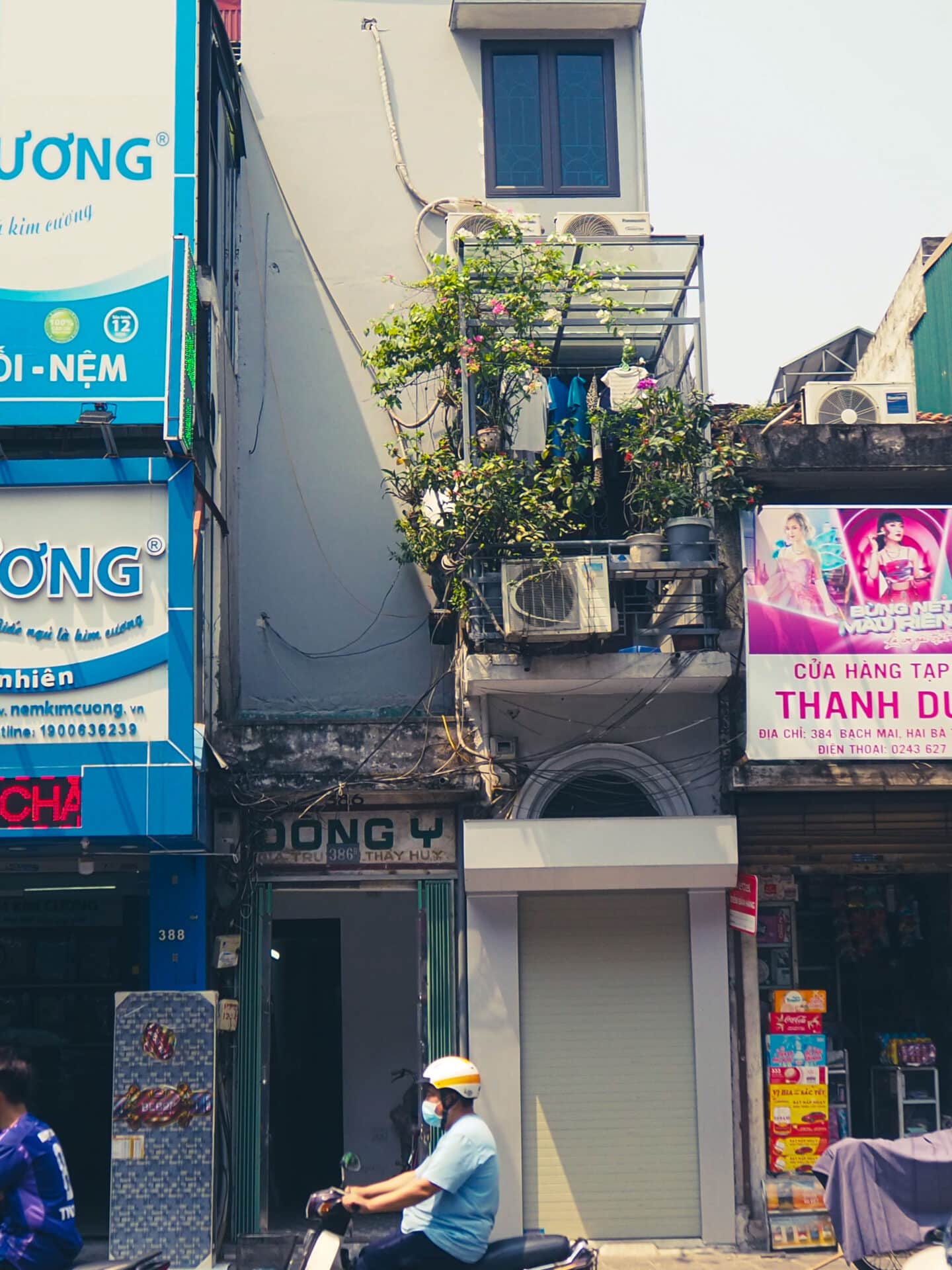
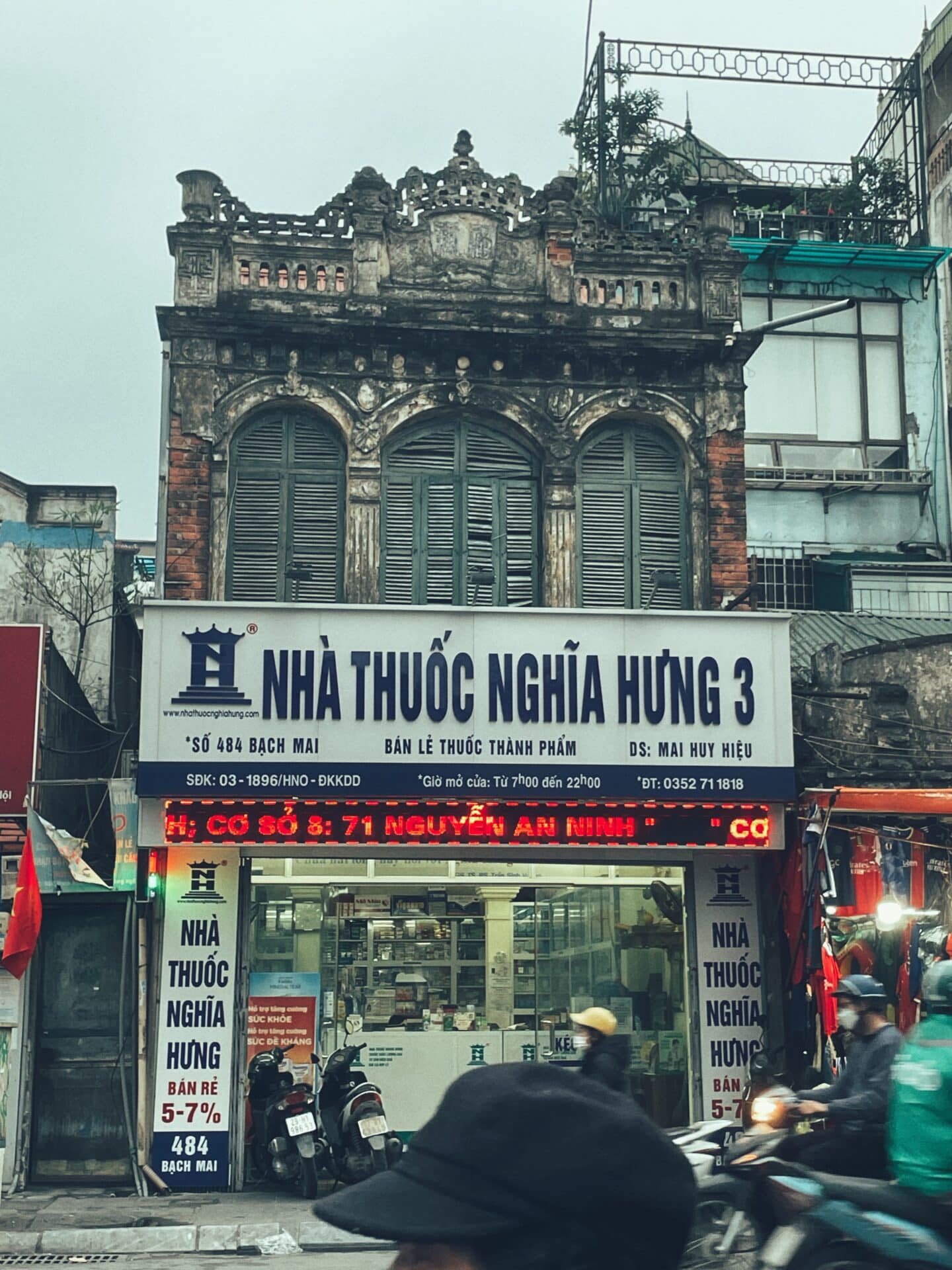
As I drive down the street in a traffic jam on this boring afternoon, Bach Mai still contains so much for me. The unbearable heaviness of human lives. Struggle with the impossibility of life’s possibilities. The gentle tenderness of memory. Past, present and future forever twisted in a grim dance.
I drive home, in a rain that begins to fall, through a long-dead apricot forest, and already I miss Bach Mai.
© Maik Cây
English translation © Khai Q. Nguyen
Commissioning editor: Quyên Nguyễn




